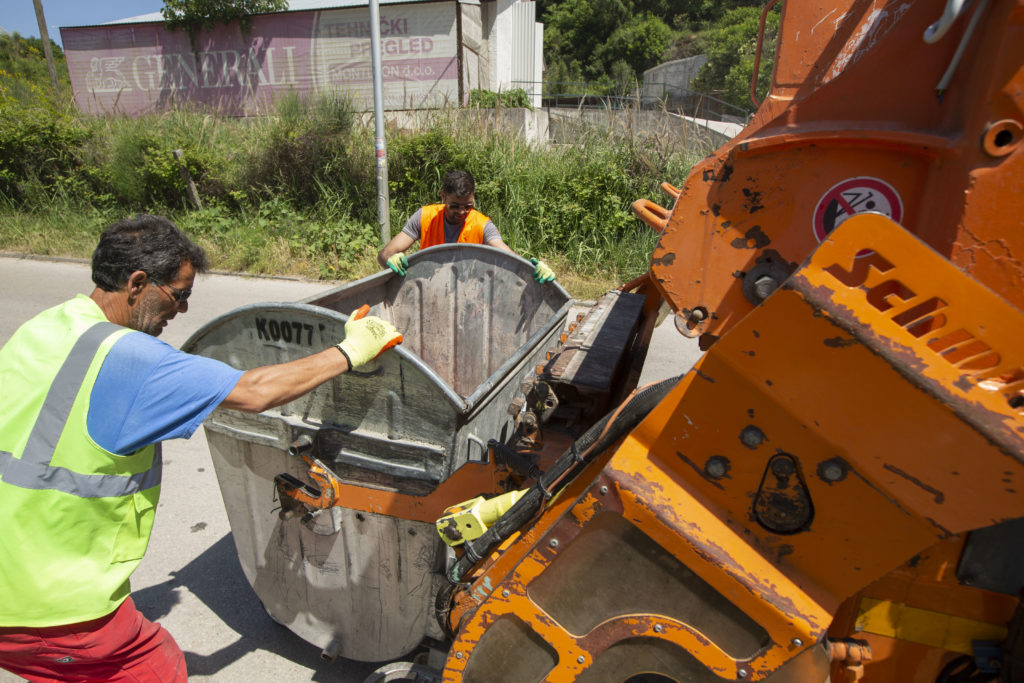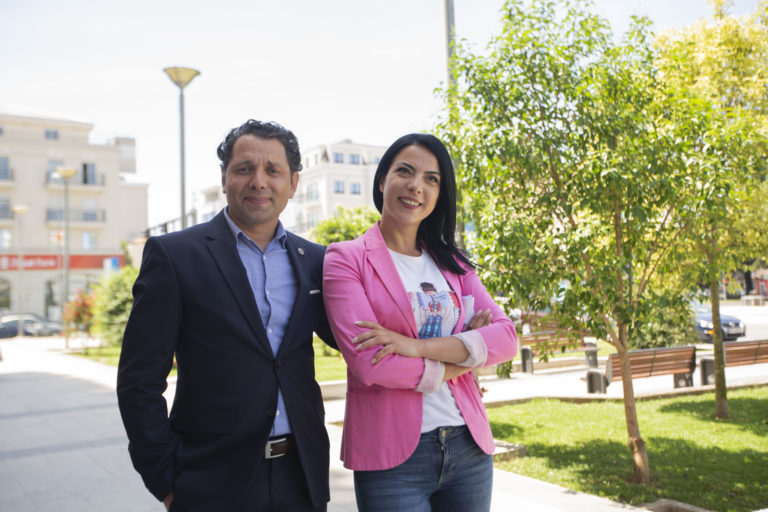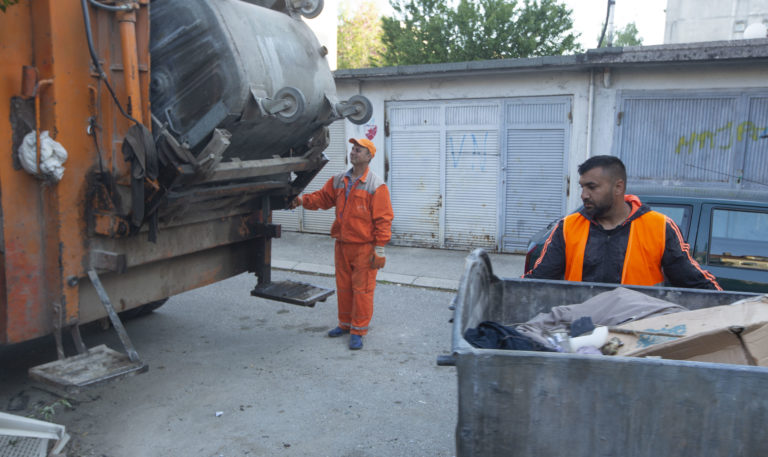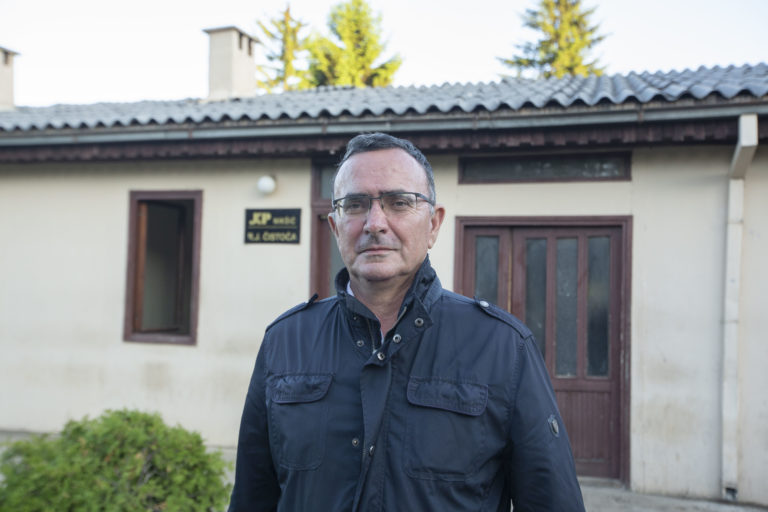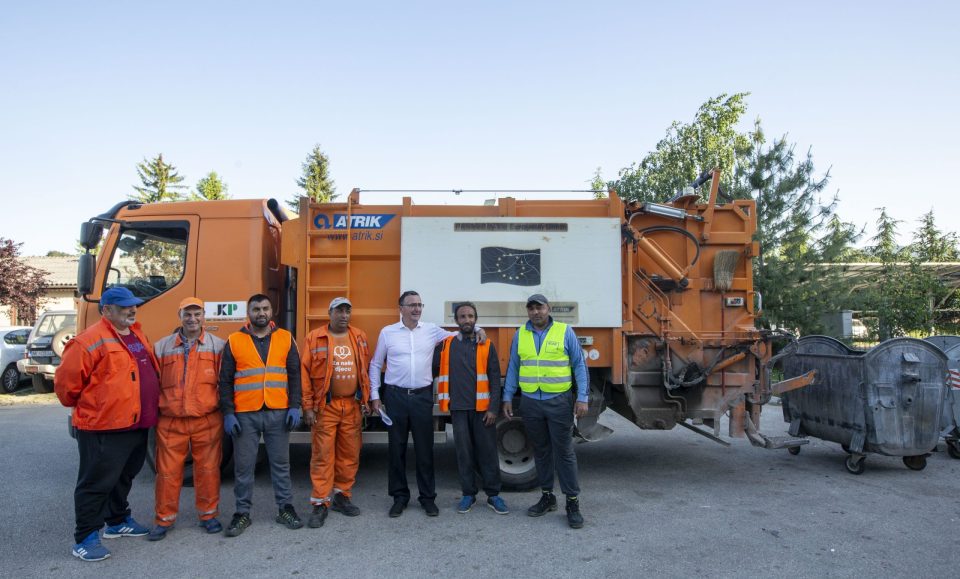The process of political socialization of Roma population in Montenegro is still at the beginning stage. They remain the most vulnerable minority in Montenegro, not very familiar with the political system or mechanisms through which trade unions act.
posted on
- September 16, 2021
Bin workers in Montenegro stand up for their rights
Every working day at 4 a.m., Dašo Đurđević starts his truck and sets off on a rubbish collection mission in Herceg Novi together with his colleagues on the riding step. He has been working for the local waste collection company for more than 20 years. In an interview with the EU Info Centre, he explains what a normal day looks like for him.
“Working conditions are difficult. Summers are very hot, with temperatures above 40 °C, while winters bring heavy rain, wind and storms. Our crews spend all that time on the riding step and work in such weather,” explains Dašo.
Being aware of the conditions in which they work, Dašo decided to go into a union battle. His effort was a success, so in 2016 his colleagues elected him the president of the local union of waste collection workers. The first big victory was the collection of a €100,000 debt on account of overtime pay.
“In the past, we never had a single day or holiday off. Everything would be met with a negative response. But with the formation of the union we have succeeded in solving many things. We have been able to achieve good communication and understanding with the management. Now they invite us to have talks on various issues and they accept our proposals. Results are visible,” our interlocutor says proudly as we visit his cleaning area.
Vaselj Beganaj is Dašo’s colleague from Nikšić. He has been riding on the riding step and loading waste for three decades. He is the leader of the trade union at the municipal waste collection company.
“In the past, we never had a single day or holiday off. Everything would be met with a negative response. But with the formation of the union we have succeeded in solving many things“, says Dašo Đurđević, a bin worker of the Herceg Novi waste collection company.
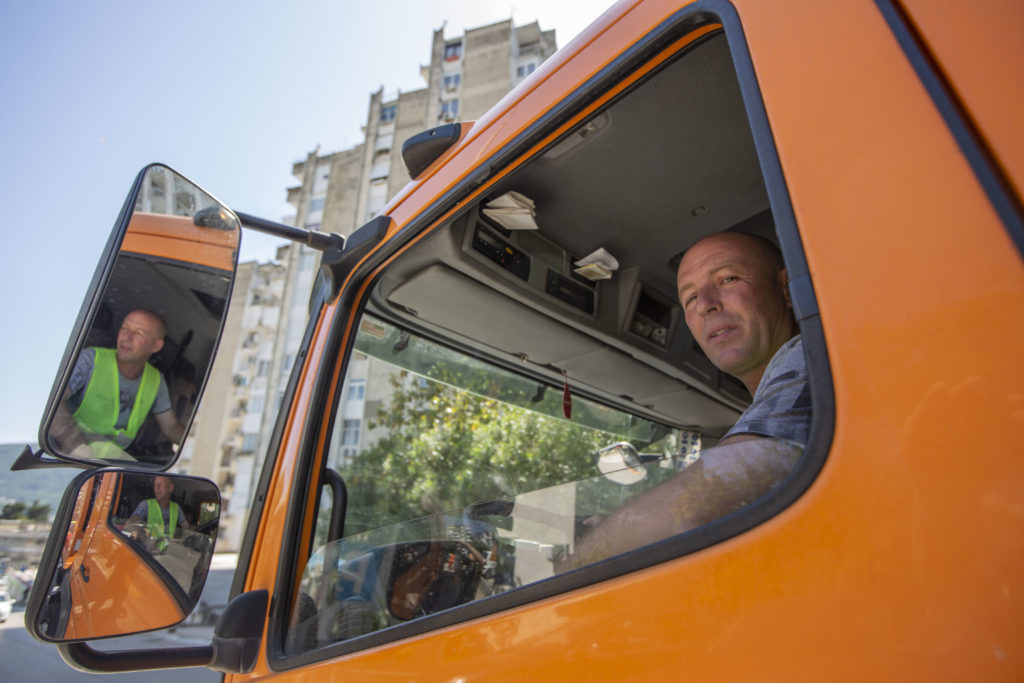
“I’m not aware of any trade union that has brought their struggle to a conclusion. We always have to fight for someone’s rights, so we’ve got a lot of hard work ahead of us. We hope we’ll produce some change in order to protect the workers in our company, and hopefully in the whole of Montenegro as well,” says Mr Beganaj as he climbs onto the riding step of a truck and begins his afternoon shift.
And how did bin workers begin their union battle in the first place? The credit goes to the non-governmental organisation “Young Roma” and the Union of Free Trade Unions of Montenegro (USSCG), which formed 3 new local trade unions as part of the EU-funded project “Strengthening the public activism of Roma – United we can do more”. Besides Herceg Novi and Nikšić, there is also Kotor. They shared with us their experiences of building trade unions in one of the most vulnerable professions.
“Thanks to EU support, we had the opportunity to go out to the field and educate workers on their rights and freedoms. Those field workers – who are the heart of any waste collection company – have displayed a strong desire and the need to change things. We gained their trust and that helped us find a common language and go into a genuine union battle with the aim of improving their position,” explains Ivana Mihajlović of USSCG.
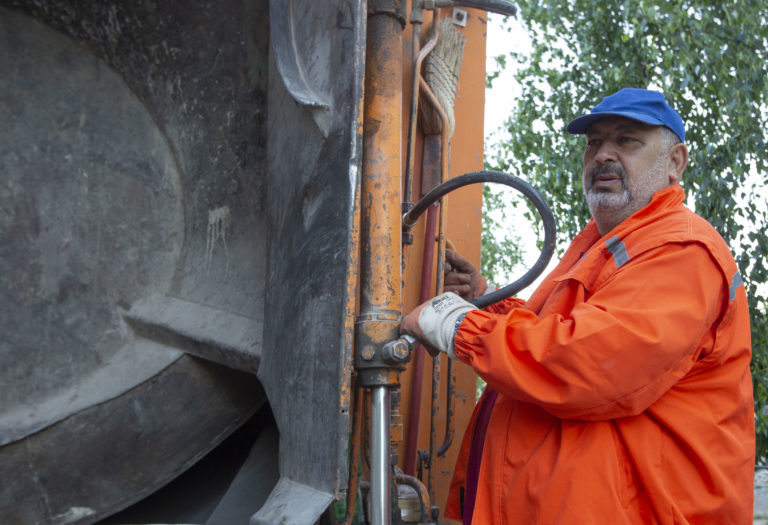
“I’m not aware of any trade union that has brought their struggle to a conclusion. We always have to fight for someone’s rights, so we’ve got a lot of hard work ahead of us, says Vaselj Beganaj, the leader of bin workers’ union in Nikšić.
“The mere fact that there’s a union makes a difference for the Roma community, as they are now aware that they have someone to turn to and someone who’s there to listen to them and who will honestly fight for their rights. That’s the key result of this project,“ says Samir Jaha of Young Roma.
They all went a step further and formed a branch union of bin workers under the umbrella of USSCG. This was done within another EU-funded project entitled “United we can do more – giving a voice to students, giving support to workers!” This union also includes waste collection companies in Pljevlja, Bijelo Polje, Danilovgrad, Podgorica, Tivat and Budva. The first task of the branch union was to demand the early retirement benefit for waste collectors.
“We sent a letter of intent to all employers, demanding that the early retirement benefit should be provided to people who do a very difficult job in both rain and snow, from morning to evening. Our efforts were interrupted by the coronavirus pandemic, so we were unable to get the job done. We will continue our fight, in order to create working conditions worthy of human dignity, as these people deserve,” said Branko Pejović, the president of the branch union.
Although EU-funded projects have been completed, their mission is not over, which was confirmed by Ms Jaha at the end of the interview.
“I’d say this is just the beginning. We should continue working on capacity building, communication and coordination. This was a prerequisite for us to be able to move forward,” Mr Jaha concluded.
